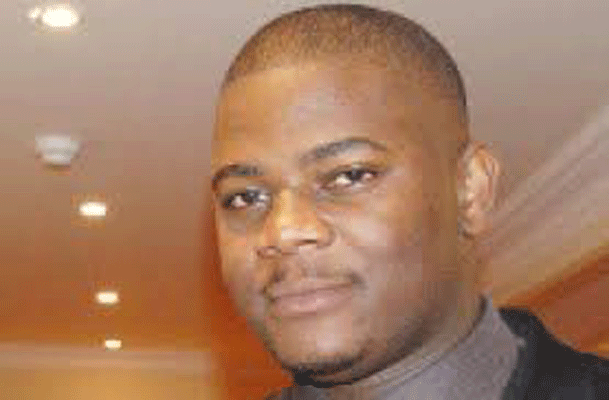
BY ALEX MAGAISA
So July 31 has come and gone. Harare resembled a ghost town. The streets were empty.
Shops and businesses were shut. All the arterial roads leading into the city centre had roadblocks manned by police and soldiers.
Yet again, President Emmerson Mnangagwa had deployed the military.
This is the fourth time since Mnangangwa became president in November 2017 that the military has been deployed ostensibly to assist the police to keep law and order.
The outcome of the heavy military presence was that people were unable to march in the streets as they had intended to do.
So what does this mean? Does it mean the demo failed?
It would be simplistic to ascribe failure to the demonstrations just because the marches across the country did not happen.
- Chamisa under fire over US$120K donation
- Mavhunga puts DeMbare into Chibuku quarterfinals
- Pension funds bet on Cabora Bassa oilfields
- Councils defy govt fire tender directive
Keep Reading
Rather, the fact that the government took heavy pre-emptive action to stop the marches shows the seriousness with which it took the demonstrations.
It also reveals the real fear that the government has concerning the people.
Otherwise it would allow the people to march and express themselves.
True to form, the government took a heavy-handed approach to those who expressed themselves.
In the run-up to the protests, it arrested and detained Jacob Ngarivhume, the opposition politician who made the first call for the demonstrations.
It also detained renowned investigative journalist Hopewell Chin’ono, who helped to expose corruption over the procurement of Covid-19 goods and equipment and was also supporting the demonstrations.
On the eve of the demo, it raided another journalist, Mduduzi Mathuthu’s home.
When they didn’t find him, they took his sister into custody, a crude strategy to force Mathuthu out of hiding.
They had earlier arrested his nephews, one of whom was still missing and unaccounted for by late Friday afternoon.
On July 31, the regime arrested Fadzayi Mahere, spokesperson of the MDC Alliance, and Tsitsi Dangerembga, Zimbabwe’s world-famous writer whose latest novel The Mournable Body is on the 2020 long-list for the prestigious Booker Prize.
There were many more arrests across the country, with countless other activists going into hiding.
All this has brought negative attention and publicity to Zimbabwe.
Like its predecessor, the regime has a penchant for shooting itself in the foot.
Therefore, even without the mass demonstrations that people would have wanted, July 31 has been an important expression of discontent towards the Mnangagwa regime.
It turned into one large stay-away enforced by the regime.
The purpose of any demonstration is to send a message and in that regard, July 31 has been an important expression by the people and by the government to its people.
The people are fed up and the regime is scared of the people.
This is a regime that no longer enjoys public consent. Instead, it relies ever more on coercion.
It has, as it has done twice before, resorted to the boys in military fatigues to forcefully enforce its power.
A government based on consent relies on obedience and compliance bythe people. It does not make military force the default instrument to enforce its authority.
Mnangagwa cannot even trust the regular police service. Instead he has to depend on the soldiers.
However, as I have argued before, reliance on coercion is unsustainable in the long run.
It is costly because the agents of coercion, namely the soldiers, must be kept happy through a system of incentives.
Such incentives are not infinite. Reliance on soldiers to enforce the regime’s rule is also counter-productive because it is a double-edged sword.
It might work against the people, but it will also end up working against the rulers.
For sooner or later, the soldiers will discover that they have power and they do not have to serve the rulers.
Instead of exercising power indirectly through their rulers, they will discover that they can have direct access to it.
They will by-pass the rulers. This is more commonly referred to as a coup.
This means the more Mnangagwa relies on the military to enforce his rule, the more he exposes himself to the power of the military.
This is particularly the case as tensions rise within his party.
It is unclear what strategy organisers of the July 31 demonstrations had in mind.
It would be a waste if it were limited to a one-day affair. Authoritarian regimes are not affected by one-day events.
The image that comes to mind is that of waves crashing against a cliff.
Theirs is a relentless mission, coming and going, gathering force with every ebb and flow.
It has to be an incremental process. The essential question on July 31 was who between the government and the organisers would blink first.
The government panicked and blinked first, and in the process, it betrayed its fears and insecurities.
The government cannot permanently rely on coercion.
It is expensive and tiring. There will come a point when fatigue catches up with the agents of coercion.
The world has had no shortage of regimes which placed all their bets on the military, only for the latter to regain its sense of moral judgement, realising that its interests were more aligned with the suffering masses than with the thieving minority of political elites.
That day will arrive in Zimbabwe one day, but only if the people continue to express themselves, even without doing anything, like what happened on July 31. — Big Saturday Read










